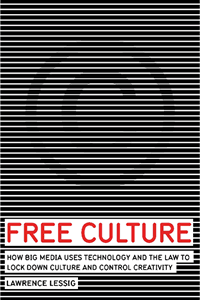I never learned Hebrew so I don’t know what that headline means – I just cut and pasted the name of the jpeg Gilat sent me. I do know Sita Sings the Blues will screen with Hebrew subtitles at Holon Cinimateq/Animateq on November 12 for Animation Day. I won’t be there (I’ll be in San Francisco) but my ASIFA-Israel friends will be. Tell your Hebrew-knowing friends!
Category: Free Culture
Comics! Animation! Post-Modern Literalist Irony!
Free Annette Hanshaw “Sita” soundtrack!
 Music collector Matthew Lanoue has made available as free downloads the Annette Hanshaw songs used in Sita Sings the Blues. These recordings are only available anywhere due to the efforts of record collectors, NOT Big Media corporations. Thanks Matthew!
Music collector Matthew Lanoue has made available as free downloads the Annette Hanshaw songs used in Sita Sings the Blues. These recordings are only available anywhere due to the efforts of record collectors, NOT Big Media corporations. Thanks Matthew!
Update – today, October 18, is Annette Hanshaw’s birthday! How’s that for fortuitous timing? Hat tip to Stewart and Steven for emailing me.
Free Culture
If you want to know more about how the American copyright system became broken, and why instead of fostering creative innovation like it used to, it now suppresses it, read Free Culture by Lawrence Lessig. Heck, read it anyway. You can buy the printed book or download it for free. It illuminates everything Sita Sings the Blues is up against, and why you should care.
Lessons Wrong and Right
From today’s ASIFA-SF Newsletter by Karl Cohen:
After interviewing Normand Roger about sound design and using original music, I became aware of somebody who chose to use prerecorded music without first clearing the rights to use it. It can be a costly mistake if you want your work seen by the public.
I asked a film distributor what are the person’s options about getting a film out without having all rights to the music cleared. He said, “They are screwed. Over and over filmmakers use music they should never use without getting the rights. The music owners now figure they have to pay whatever they ask. Or change the music. That is what must be done. Compose some original stuff. No distributor will take it on without proper music rights. Even if the filmmaker puts the work online for free they can be sued and brought down by the music owners. They need to go to Lawyers for the Arts.”
I don’t want the lesson others take from Sita to be “don’t do that!” My hope is that Sita shows that yes, you CAN do this. The film violates some immoral and unconstitutional laws, but it EXISTS. If I’d followed all the rules, the film would not exist. If you take a lesson from Sita, let it not be to fear creative expression; let it be that US copyright laws are broken. Don’t use it to teach fear; use it to teach that, with some courage, anything is possible in art.
All film classes, film professors and film “experts” are adamant about not working with any cultural artifact whose rights aren’t cleared in advance. Clearing rights is a byzantine and prohibitively expensive proposition out of reach of all but the wealthiest productions – poor independent artists are shut out of this “required” step. Nonetheless, people who should know better encourage budding artists to self censor; to crush their own ideas before they are born in fear of possible litigious consequences. Rick Prelinger of archive.org calls this “internalizing the permission culture,” and it is a sure way to stifle, if not kill, creativity.
I am outspoken about the wrongness of today’s copyright laws that keep so much American history out of the Public Domain, and other copyright laws that criminalize certain forms of speech (such as computer programming) and criminalize millions of Americans for sharing culture. I was aware that working with existing compositions – compositions that were supposed to be in the Public Domain in the mid-1980’s – could lead to hardships when the film was done. I’m not saying, “boo hoo, poor me, how could this have happened?” I’m blogging so much about Sita‘s legal situation because I want people to know what’s wrong with the laws. Big Media Corporations rely on peoples’ ignorance to continue pushing worse and worse bills through Congress.
An artist’s job is to make art. I understand that many people in “creative” fields like animation aren’t artists but craftsmen, and if their primary goal is to make money off their craft, then indeed they should be warned away from taking risks. But I want to appeal to the artists out there: be free. Start with your own mind. Your job is to make art, not self-censor. Others may try to censor you, threaten you, sue you, imprison you; but that is their sin, not yours. Please don’t commit these crimes against yourself. Let them do it if they must, but don’t assist them in your own oppression. Please stay free.
Dear Apologists for Immoral and Unconstitutional Laws
Can you believe that lady? High ideals are all well and good, but she knew the rules. So unprofessional! She didn’t have to take that bus. If you don’t like the rules, don’t ride the bus. I’m an industry professional, and I give up my seat all the time – that’s what “professional” means. What if it were YOUR bus? You certainly wouldn’t want just any riff-raff riding it as they pleased. Plus if she’s so great, she should have raised $220,000 for skin-lightening cream – problem solved. Or buy her own bus! But no, she thinks she’s so special. What a whiner.
Too bad people forget the story of Rosa Parks – but then it’s been hard to see the documentary Eyes on the Prize over the past decade, thanks to unconstitutional copyright laws.



